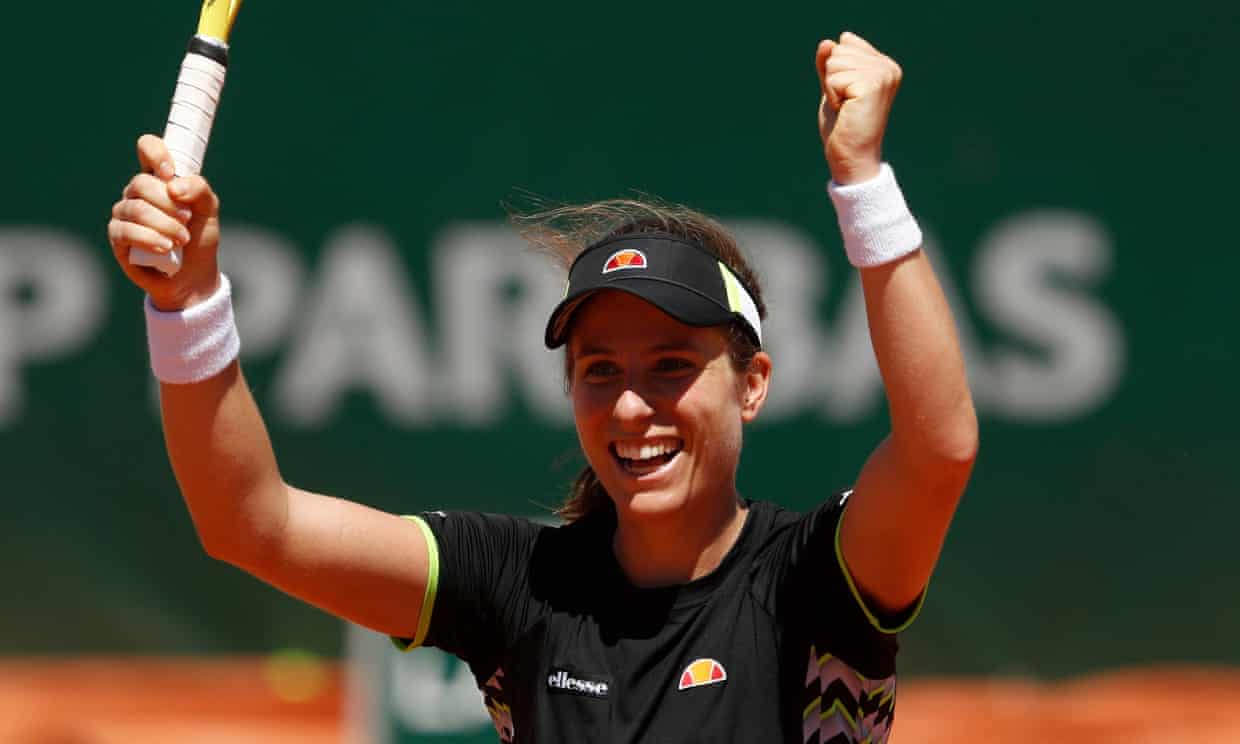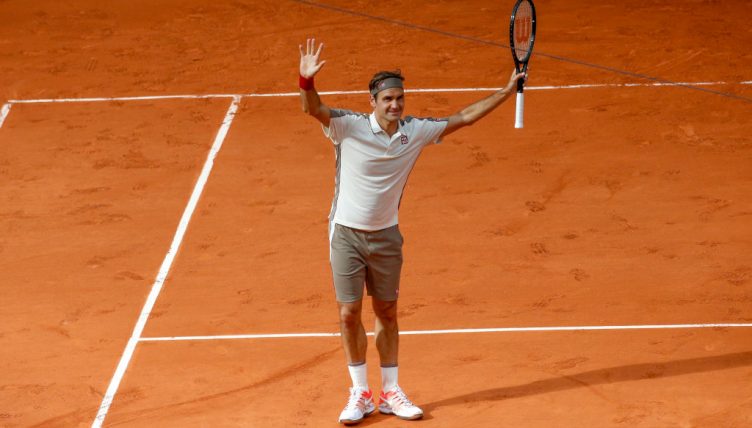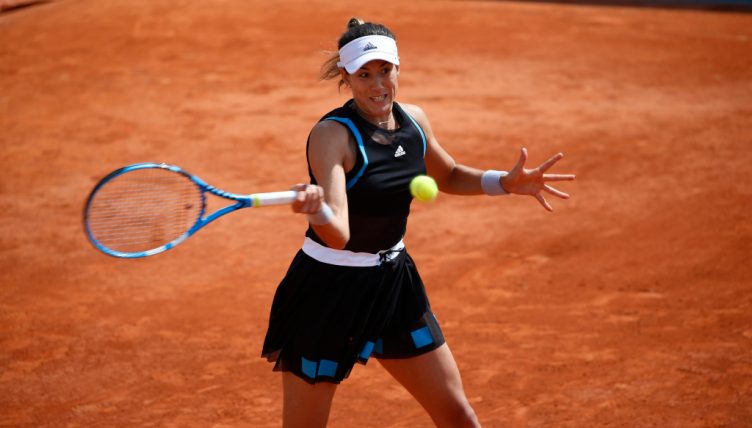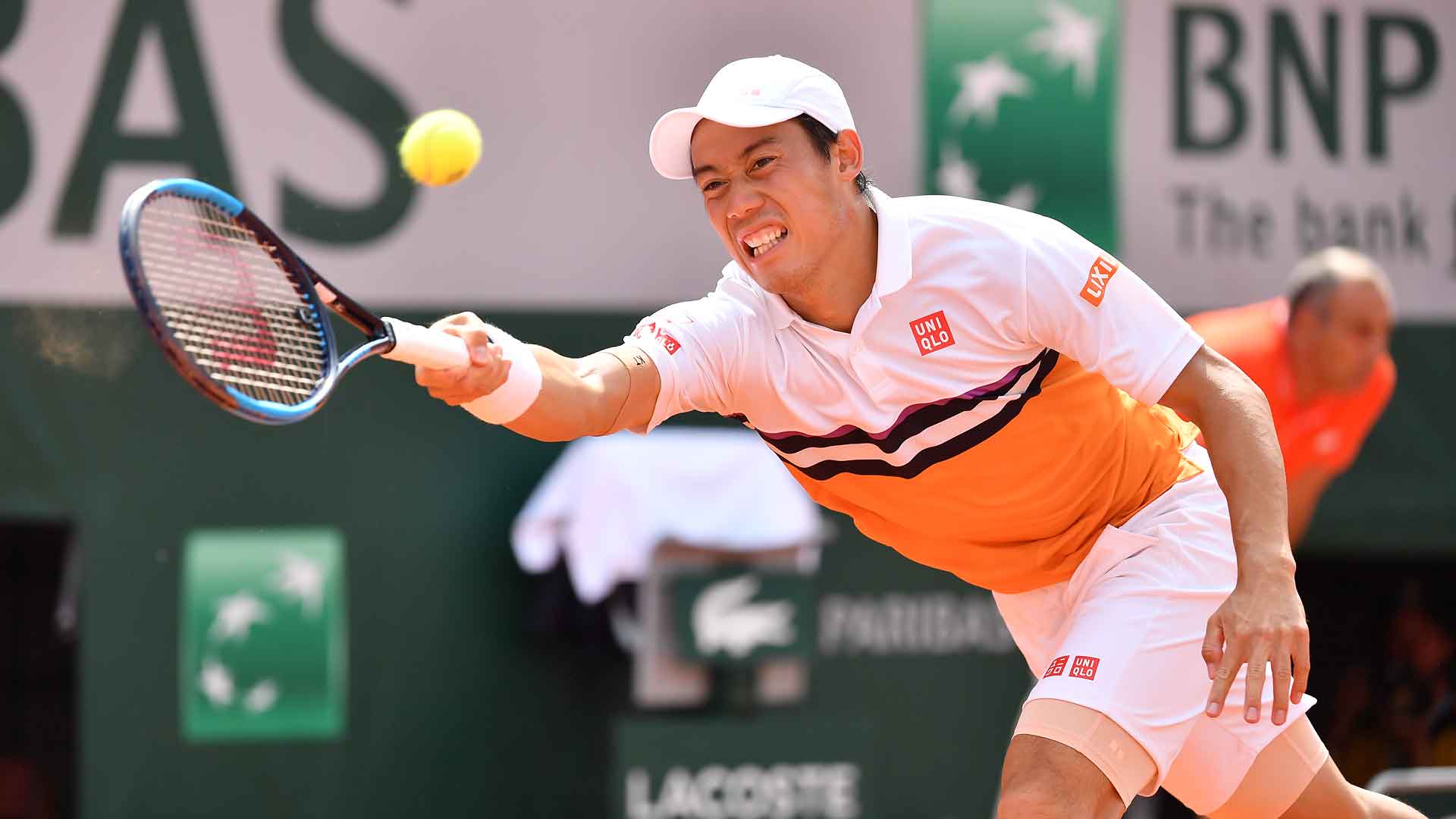Johanna Konta beats Donna Vekic to reach last eight

Insurrection has seeped into the fabric of this tournament, with old favourites and young contenders falling like ripened apples in the heat, and Johanna Konta has as good a chance of winning the French Open as any of the other five seeds left in the shredded women’s draw from the original 32.
The day after the three-times champion Serena Williams left in a strop after losing to the exciting young long-shot, Sofia Kenin, Konta produced another excellent clay performance to beat her friend and rival Donna Vekic 6-2, 6-4 on a cloyingly warm Sunday afternoon.
She is the first British woman to reach the quarter-finals since Jo Durie in 1983 and will almost certainly play on the partly refurbished centrepiece of this intimate, charming venue, Court Philippe Chatrier, where the world No 109 Hsieh Su-wei beat her two years ago when she was seeded seventh.
On Tuesday, Konta will play last year’s finalist, Sloane Stephens, whom she has beaten in both their encounters and who broke down the resistance of Garbiñe Muguruza to win 6-4, 6-3 on a fifth match point. In the bottom quarter, the 31st seed, Petra Martic, outlasted Kaia Kanepi in three close sets over two hours and 12 minutes. Konta leads Martic 2-1 in their career matches. On the other side of the draw, played on Monday, the contending seeds are Madison Keys (14), Ashleigh Barty (8) and the defending champion, Simona Halep (3). Konta has a winning record against two of them, though not Barty.
Earlier on Court Suzanne Lenglen three breaks on the spin at the start of Konta’s match lent proceedings an air of familiar uncertainty. Vekic stayed in touch, holding with an ace but Konta broke again to take the first set, then the second to get out of the sun after an hour and 24 minutes.
“We’ve had a number of great battles,” Konta said. “I’ve lost the last two. This was the first time on clay. I just tried to keep a good perspective and enjoy being out here against a great player. There was always going to be very little in it.”
Annabel Croft, who reached the second round here in 1986, was more effusive. She described Konta’s hitting as “so clean out of the strings” and everyone Konta has faced in the first week would agree.
She has developed extra sharpness under her coach of six months, Dimitri Zavialoff, a Franco-Russian familiar with clay, which once was her glaring weakness. Losing at the French Open in the first round four years in a row supported that view, although Konta fought the perception that the surface was responsible.
Durie, Croft’s Eurosport colleague and a former British No 1, understands the player’s reasoning. “It’s easy to forget she has qualified here before and reached the third round of Rome before this year, so it’s not a total surprise,” she said. “I think there was this barrier with her which always was bigger at the grand slams, about winning the first round. It can make you more tense.”
Croft added: “She’s also thinking very clearly out there because she was mixing the pace quite early on and you can see these are very tricky conditions. Vekic never really found her form.”
But the player who could upset all the remaining apple carts is the athletic Czech Marketa Vondrousova, one of three teenagers to make the fourth round and the first one into the quarters after trouncing the 12th seed, Anastasija Sevastova, 6-2, 6-0 in just under an hour.
She has dropped only 21 games in four matches and her free-hitting will give Martic plenty to worry about. If she beats the 28-year-old Croatian for the first time in five meetings, she could play Konta in the semi-finals on Thursday.
The ridiculous spat between Serena Williams and Dominic Thiem, who had to vacate the main interview room for her on Saturday, rumbles on.
Thiem, who described the episode at the time as “a joke”, said: “I wasn’t angry or frustrated – maybe for a couple of minutes or so. It is just the principle.”
Nick Kyrgios, no stranger to a row, posted on Twitter, “… serious issues around the world and we are worrying about who is getting interviewed after a tennis match, oh man.”
Roger Federer, ever the diplomat, reckoned there had been “a misunderstanding” but said he, Thiem and other players found it amusing. “I’m very much aware of what happened and that’s why we are laughing in the locker room about it now.”





